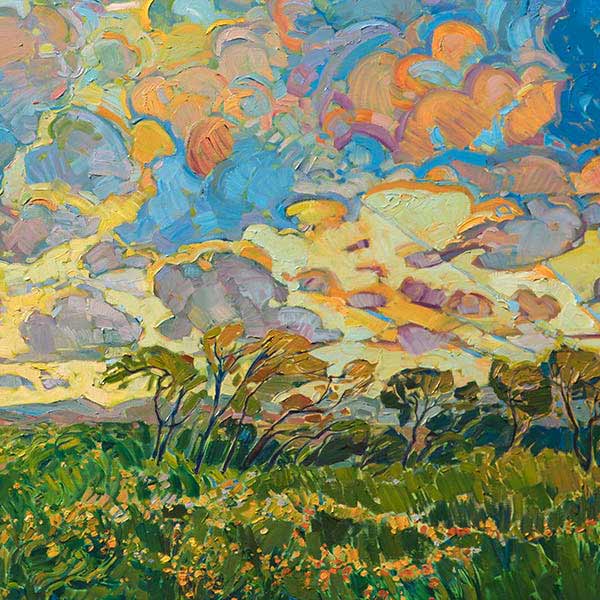Subtotal: $
Checkout
A Different Hope
In the face of nationalism and socialism, does the Christian prophetic vision have anything better to offer?
By Eberhard Arnold
January 25, 2024
Available languages: Español
This article is an excerpt from Experiencing God, the third volume of Inner Land: A Guide into the Heart of the Gospel.
The more shaking the historical events of a time period, the more necessary it is to recognize what spiritual power determines their course. Outward events as violent as those of our day call for an insight into this ultimate will and its aim. But the more agitated the times, the more temporary matters push to the fore. At such times of tension, a tangle of issues seems to prevent any clarity about the ultimate answer. Mounting pressure leads to emergency measures that seem imperative. Conditioned to the times, they are not able to turn the tide of need and distress. One attempt follows another, misery increases, and nothing can overcome it; people go under in the day-to-day struggle and lose all hope of a change.

Erin Hanson, Radiant Clouds. Used by permission.
Some think we have to give first place to patriotic ideas and the historic task laid on the nation. The longed-for freedom of the national community appears imperative at the moment, demanding that everything else be subjected and sacrificed to this. Others, however, believe in a historical development to raise to power in every nation all those oppressed and exploited by competition and private enterprise; for a time they are to be given unlimited power. In comparison with both of these, the champions of liberty and freedom for the individual (with the consequent competition) retreat into the background. No state protection preserves them from their approaching insignificance. What falls almost completely by the wayside in the struggle for quickly-won power is this: in the end, a classless society based on justice and peace shall unite all extremes.
To the right, in contradiction to Christ, they want religion to uphold unconditionally the power structure they have fought for.
Not one of these three directions with their struggles and fluctuating hopes expects anything from the prophetic power of the Christ-proclamation. Those who stand in the middle between the first two extremes have no fear that their egotistical life might be shattered by the kingdom of God. And where individuals try to comply with the economic system, their consciences become too dull to be aware of how universal need and distress are. But to the right and to the left, people think more seriously. To the right, in contradiction to Christ, they want religion to uphold unconditionally the power structure they have fought for. Christian consciences are meant to surrender to it in willing submission; the conscience becomes the slave of political power. To the left, all they see in the Christian confession is their most hated opponent. All they know of Christianity is the social power of class privilege, which, also in contradiction to Christ, covers up social injustice with a hypocritical mien and refers the tormented to a better world hereafter. The Christian conscience appears to represent the height of injustice and should be exterminated.
To all this, Christian confessions in general, apart from a few rare exceptions, have nothing to say. The prophetic clarity of intense and confident waiting for a final kingdom – a kingdom of loving community in God – has given way to feeble imitations. People no longer believe that the peace, justice, and brotherliness of the kingdom of God are a present reality that eclipses all other hopes of the future. And yet all these prospects of a better future are borrowed from and would not exist without the hopes of prophetic early Christianity. But not even the historical significance of early Christian prophecy is taken seriously. In practice, the general run of Christianity just accepts existing conditions of social order, or disorder, including any new ideas people come up with. The early Christian expectation is being forgotten. Because it is no longer seriously believed, it has, for present-day Christianity, lost the dynamic to overturn and transform everything.
There are still those who point out seriously that God is quite other than man, quite other than all man of himself wants or does. But there are very few who believe in this quite different God so truly that they see the approach of his reign and comprehend it. Only these very few lend a hand in faith so that a fundamental change that will affect everyone and all conditions actually begins. The inner thinking born of faith in God’s kingdom is completely other than the thinking of human religion: those with faith in God’s kingdom approach everything with a certainty from God himself that the impossible can become possible, in outer circumstances just as much as in the innermost. This faith in God may be as small as a grain or seed, yet it will remove obstacles of the weightiest nature.
Such faith lets what belongs to the future and to the beyond penetrate the present – this earth. Out of the strength it derives from this source, it sets to and gives everything shape and form. The believer has realized that to leave God in the world beyond is to deny Christ. For Christ has said and proved that God draws near, so near that everything has to be changed. “Change from the very foundation. For the reign of God has drawn near. Believe in these tidings of joy!” Yet Jesus knew that this triumphant joy would be accepted by only a very few. People are readier to place their faith in the autonomy of things than in the message of God that overturns everything. They experience things more forcibly than they experience God. They are idolaters, for they serve the creature more than the Creator.
God wants to be known and experienced. Yet we quake before it.
Here faith has to step in and unite our life with the creative power. This power alone remains superior to any created power. God remains God, but we become his. God stands above all that happens. Only when we are one with God can our faith withstand all powers that storm it. It is not we who stand firm. Only God is invincible. In him alone is that freedom of soul found that saves us from being enslaved, however mighty the enslaving power. God has drawn near. We can be in God. God wants to be known and experienced. Yet we quake before it. The experience of God is terrifying, because it discloses truth. Because God’s light shows up our darkness, we are afraid of it.
God begins – that is the end for man. When in fear and trembling we know God and are known by him, God is drawing near to us in person. When the Most High descends to us, the degraded, he tears away all cloaks and barriers. God is revealed only through this fearful experience. When we experience God, we appear before him as we are. As long as we shrink from being exposed for what we are, from God’s unhindered recognition of us, we remain lost and helpless, overwhelmed by the superior power of the external world. As long as we submit to things as they are and remain their slaves, terror of God repels us and keeps us at a distance.
God is indeed other than we are. It is true that in our unbelief, he is far removed. We have lost sight of his image. But it was not always like this and must not stay so. We were created once to be near to him. God began – that was the beginning for man. There was a time when God’s drawing near did not spell terror. God’s image was once entrusted to us so the Spirit would rule. This rule of God’s Spirit was to be recognized among us as the creative power of unity, as love and community. We have forfeited all this. We have lost God. Only God himself could give us back what we have lost: himself and his image. In Jesus Christ he did this. In Jesus, God’s heart has come into our midst once more. Once more it became clear in Jesus what kind of will and spirit God is. Jesus revealed afresh what purpose and what reality of unity and love live in God. He came to do the will of the Father. He brought the Father down to us. He carries out his decree. He and the Father are one. In Jesus, God is near once more.
Already a subscriber? Sign in
Try 3 months of unlimited access. Start your FREE TRIAL today. Cancel anytime.







Naomi Johnson
Printing this off to ponder and process further. Thanks for your Daily Dig (my inbox) that shared an excerpt with me. Appreciated.
Newton Finn
All my life, I believed in the sublime, elemental things that Eberhard Arnold states so clearly and succinctly in this article. But until recent years I never understood, in the remotest sense, what a society, as opposed to a person, would look like, feel like, if it were structured on the teachings of Jesus. The closest I could come was to try to imagine the early church described in Acts, but that was only a small, close-knit community surrounded by empire. And it wasn't all that long before that church grew old enough to marry that empire, and the rest is checkered Christian history. Then I stumbled upon the work of a late 19th Century American novelist, and everything I longed to know took on concrete, detailed form, became able to be understood and envisioned in my mind and heart. The novelist is Edward Bellamy. His two major works are "Looking Backward" and "Equality," both free to read (sequentially, as they must be read) on the internet. Both are also available at modest prices from used book sellers. Perhaps there are others here at 'Plough" who are inclined to take the time to climb the mountain of two Victorian novels to catch a breathtaking, life-changing view of the kind of society God intended us to build and live in, one in which the Golden Rule is not merely moral exhortation but official policy. What better time than now, in this anxious and uncertain phase of hunkering down, to do just that?”